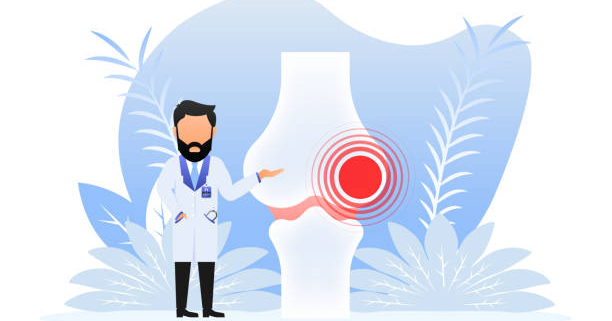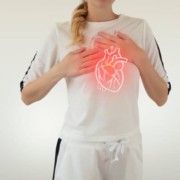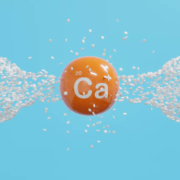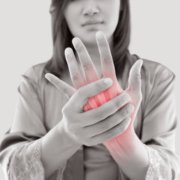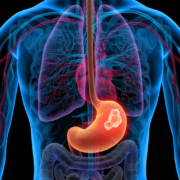Our bodies are complex machines, and staying hydrated is essential for optimal functioning. Water makes up a staggering 60% of our body weight, playing a vital role in everything from waste elimination to temperature regulation. While the importance of hydration is widely recognized, many people underestimate its profound impact on bone and muscle health. Here, the expert orthopaedic team at Ayushman Hospitals, Delhi, sheds light on how dehydration can negatively affect these crucial components of our physical well-being.
Understanding the Power of Water
Water is the lifeblood of our bodies, performing a multitude of critical tasks. It helps flush out waste products, maintains healthy body temperature, supports heart, skin, and gut health, lubricates joints, and facilitates nutrient absorption. Dehydration occurs when we lose more fluids than we consume, hindering these essential functions.
What Happens When We Are Dehydrated?
The effects of dehydration can be both immediate and long-term, with children and older adults being particularly vulnerable. Diarrhoea and vomiting can quickly lead to dehydration in both groups. Additionally, as we age, the body’s water content naturally decreases, increasing the risk of dehydration due to lung and bladder infections.
While mild dehydration often presents with readily noticeable symptoms like thirst, fatigue, and dizziness, severe cases can necessitate immediate medical attention. If you suspect dehydration in yourself or someone you care for, don’t hesitate to seek professional help from Ayushman Hospitals, Delhi.
Dehydration and Bones: A Recipe for Trouble
Though bones may appear solid, a healthy adult’s bones contain approximately 31% water. This precious liquid plays a critical role in bone health. Bone marrow, the soft tissue found at the core of bones, comes in two types: red and yellow. Red bone marrow houses blood stem cells responsible for producing red blood cells, white blood cells, and platelets. Yellow bone marrow, on the other hand, stores fat and houses stem cells that generate cartilage and bone cells.
Water is essential for the continuous production and function of these cells. It also facilitates the absorption of minerals that strengthen bones. When dehydrated, the body struggles to absorb calcium and vitamin D, both crucial for bone health. This deficiency can lead to osteoporosis, a condition characterized by weak and brittle bones prone to fractures. Dehydration further compounds the problem by hindering the body’s ability to eliminate toxins, which can build up in bones and contribute to inflammation and bone mass deterioration.
Dehydration’s Grip on Muscles: Reduced Performance and Pain
When dehydrated, the body prioritizes water allocation for vital organs like the heart and lungs, restricting supply to other areas like muscles. This lack of essential fluids and electrolytes (minerals like sodium, calcium, and potassium) can lead to muscle cramps and hinder overall performance.
Protecting Your Joints: The Importance of Synovial Fluid
Our joints are marvels of engineering, allowing for smooth and pain-free movement. Up to 80% of joint cartilage is composed of water. A dense lubricating fluid called synovial fluid bathes the joints, providing a cushion between bones and absorbing shock during movement. Dehydration depletes this crucial fluid, leading to decreased lubrication and increased friction. This can manifest as joint pain and potentially contribute to long-term mobility issues.
Identifying Dehydration: Early Detection is Key
The most straightforward way to identify early signs of dehydration is thirst. However, in some cases, a laboratory test may be necessary for a definitive diagnosis. Common tests include:
- Kidney function tests to assess creatinine and blood urea nitrogen levels
- Urine tests to measure sodium concentration and plasma serum osmolality
Combating Dehydration: Simple Steps for Optimal Health
While severe dehydration requires immediate medical intervention, staying adequately hydrated is the primary defense against its negative effects. Here are some practical tips to ensure you’re consuming enough water:
- Listen to your body: Thirst is a clear indicator that your body needs water. Don’t ignore it!
- Snacking vs. Drinking: Sometimes, thirst can be mistaken for hunger. Try drinking a glass of water before reaching for a snack to see if that satisfies your craving.
- Monitor your urine: Pale yellow or clear urine indicates good hydration, while dark yellow urine suggests dehydration.
- Regular urination: Frequent urination is a sign of proper hydration. If you’re not urinating regularly, increase your water intake.
Seeking Medical Attention: When to Worry
Severe dehydration can lead to serious and potentially life-threatening complications like heat stroke, kidney failure, and kidney stones. If you experience any of the following symptoms, don’t hesitate to seek immediate medical attention from the expert orthopaedic team at Ayushman Hospitals & Health Services, Delhi:
- Body temperature exceeding 103 degrees Fahrenheit
- Persistent muscle twitching
- Leathery or dry skin that lacks elasticity (tenting)
- Extreme nausea or vomiting
- Rapid heartbeat (pulse)
- Inability to sweat
- Confusion, delirium, or slurred speech
- Dizziness or fainting
Our dedicated orthopaedic doctors offer comprehensive diagnosis and treatment for dehydration symptoms. We take pride in providing the utmost care and precision in managing your health concerns. Schedule an appointment with our highly qualified orthopedic specialists for personalized guidance on lifestyle modifications and preventive measures to safeguard your muscle and bone health.
Remember, water is your body’s best friend. By prioritizing hydration, you’re investing in a lifetime of strong bones, healthy muscles, and overall well-being.

